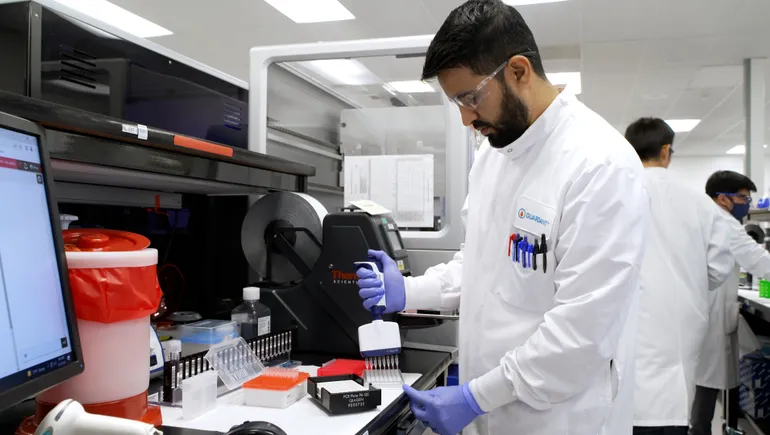A Food and Drug Administration advisory panel will evaluate whether a blood test from Guardant Health that is intended to detect an abnormal signal for colorectal cancer in DNA can be used as a primary screening option for people over 45 years old who are at average risk for the disease.
On Thursday, the expert FDA advisers will convene to consider the safety and effectiveness of the test, called Shield, and will vote on whether the benefits of the screening outweigh the risks.
The Guardant test may increase compliance with colorectal cancer screening and detect the disease at an earlier stage. Earlier treatment could potentially cure the patient or prolong survival, FDA scientists said in meeting materials posted Tuesday on the agency’s website.
However, the documents showed the FDA staff is concerned that Shield has a limited ability to detect advanced adenomas, or non-cancerous tumors that can sometimes develop into cancer. Patients with advanced adenomas have a high risk of developing colorectal cancer. The precancerous lesions have been found to progress to cancer at an annual rate of up to 5%, the FDA said.
“The risk of the Guardant blood based test for advanced adenomas is that the test will fail to detect a patient with advanced adenoma which can later become neoplastic, losing the opportunity to prevent or prolong the onset of colorectal cancer,” wrote the FDA staff.
In Guardant’s Eclipse study, the test demonstrated colorectal cancer sensitivity of 83.1%, but advanced adenoma sensitivity of only 13.2%, according to the agency’s executive summary.
“FDA is clearly seeking feedback from the panel to mitigate the 13.2% advanced adenoma (AA) risk,” said Leerink Partners analyst Puneet Souda in a note to clients.
The FDA asked the panel to recommend the appropriate patient population and clinical scenario for the Guardant test, based on its performance. For example, the test may be better suited for patients who decline other colorectal cancer screenings. The advisers also will look at what information could be gained from a post-approval study of the test.
The Shield test detects genomic and epigenomic alterations in cell-free DNA isolated from blood. The next-generation sequencing test is not intended to replace colonoscopy as a diagnostic or surveillance test.
Leerink’s Souda said it was difficult to determine what the labeling for the test could look like based on the FDA’s documents, adding that “we believe that labeling will be debated carefully.”
Guardant competitors Exact Sciences and Freenome are also developing blood tests to screen for colorectal cancer. Exact Sciences already sells the stool-based colorectal cancer screening test Cologuard.
J.P. Morgan analysts wrote in an April note to clients that the “upcoming Shield AdCom will be important to prove blood-based screening tests, in general, can make it to market.”

